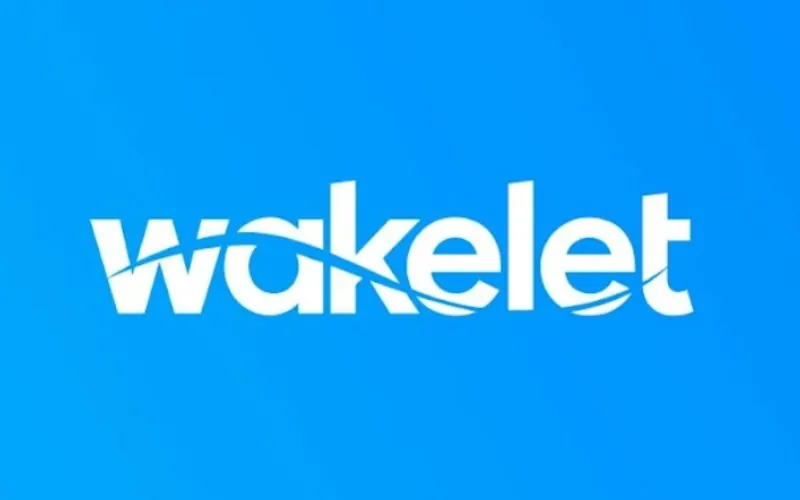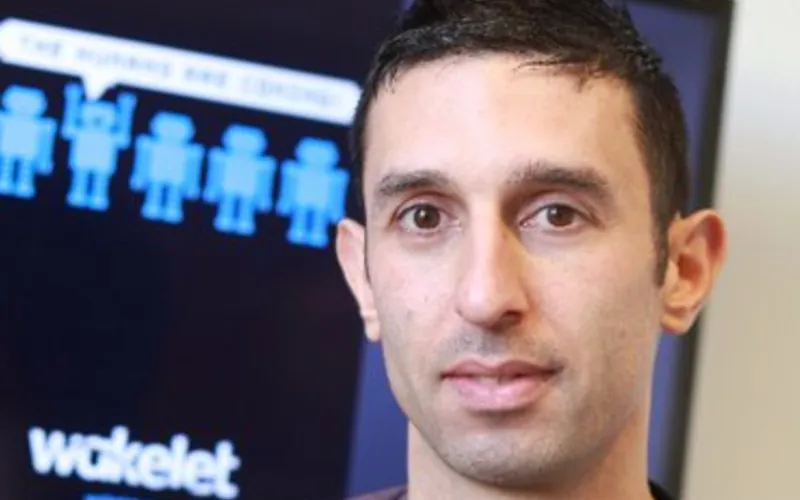Earlier this week news emerged that Manchester tech firm Wakelet had gone into administration.
The content curation and collaboration platform was launched in 2014 by entrepreneur Jamil Khalil but had struggled to raise investment as tech valuations slumped.
However, that’s not the end of the story.
Two months earlier in February, Khalil created a company called Reviven and successfully – and legitimately – bid for Wakelet’s assets when they came on the market.
More about that later but first we need to go back to 2014 and the beginning of Wakelet’s story.
Khalil created the platform after struggling to keep track of relevant information online in both his personal life and while working for Airbus.
Tech firm that ‘organises the internet’ goes into administration
In the early days he was working on the business in his spare time and used his salary from Airbus to support its development until he was able to build the first version of the product with a team of developers.
Khalil recalled how he met more than 100 UK-based investors without raising funding.
“Most people really liked the idea, but no one was willing to cross that line and invest early on,” Khalil told me in 2016. “They wanted me to have a proven product, team, traction and so forth.
“I just didn’t appreciate how difficult it was to find people who understand tech and who are ready to invest in early stage tech companies who don’t immediately generate revenue.”
However, with a platform built, the founder raised £1.1m in its first funding round – all from angel investors.

Wakelet was founded in 2014 and has called in administrators
Early investors included Chillango founders Chris Byatte and Joe Wee, who published the hit game Angry Birds.
Wakelet’s mission was to be an all-in-one content curation and collaboration platform that enabled users to organise, manage and share digital content on an easily accessible format.
The name Wakelet was inspired by the word ’wake’, in reference to the trail created in water as a boat moves through it. Just as a boat creates a wake, users on the platform create a curated ‘trail’ or collection of content that others can follow.
Even in the early days Khalil spoke of Wakelet becoming a future unicorn and made comparisons with Pinterest.
Rarely seen without his trusty Wakelet hoody he explained: “If I look at Pinterest, in simple terms it is like a human version of Google images.
“I’m able to create a board, pull images together – and that company’s had $1.3b of investment and is valued at over $11bn.
“When I look at our potential, I see it as being much bigger – we should get into that range at least if we do it well.”
Khalil said the startup’s mission at the beginning was about building the product before seeking to monetise it.
“SnapChat, WhatsApp, Pinterest – they did not make money in their first three, four years,” he told BusinessCloud’s ‘Tech Entrepreneurs Changing the World’ event at the 2016 International Festival for Business in Liverpool.
“Let me give you a scenario. If I have a burn rate of £50,000 per month, and I’m able to generate £50,000 this year from 50 paying customers, it’s going to cost me £100k-150k to develop the features to make it billable. It’s a waste of my time at this stage.
“The best thing I can do is build a product that’s got great features, get people using the product and grow it – I can monetise it later on.
“There are a number of options: one is a subscription-based model similar to LinkedIn where you provide additional value-added features for people who want more specific features – perhaps adding physical documents and videos straight into Wakelet instead of linking it off.
“It could be encrypted collections, so people can protect their stuff. There are lots of opportunities – it’s just not the right time to do it now.”
The company’s stock was on the rise and when the first ever direct flight took off from Manchester to San Francisco in 2017, Wakelet was part of the business delegation.
By 2018, Wakelet had more than a million global individual and business users on its platform, including journalists, celebrities, musicians and athletes to organise and share information effectively.
Pre-revenue
Although the platform carried on winning customers, it remained largely pre-revenue.
The problem was when investor appetite softened towards tech companies, especially in a post-Covid world, Wakelet found it increasing difficult to raise investment.
Instead of growth at all costs, investors wanted profitability from their tech companies.
According to Wakelet’s last set of accounts for 2023, shareholders’ funds had dropped to £2,015,531 from £4,923,682 in 2022.
Over the same period staff numbers had fallen from around 45 to 36, although the figure is thought to have dropped to 20 when it went into administration.

Jamil Khalil, founder of Wakelet
According to Companies House, Khalil resigned as a director on April 15th, 2025, alongside long-time investor Scott Fletcher, founder of ANS Group.
A notice in The Gazette confirmed Leonard Curtis were appointed as administrators on April 10th following a case in the High Court of Justice.
Khalil created a company called Reviven Limited in February 2025, with a registered address of Manchester’s Bright Building.
It’s understood that Wakelet went on the market as part of the administration process and Reviven successfully bid for the assets.
Fletcher confirmed to BusinessCloud that he wasn’t involved in the new vehicle but had nothing but good wishes for the founder.
“I wish Jamil and the team well as they move forward and hope that the product can continue on a positive journey,” he said.
Khalil was unavailable for comment.


